The process of learning has undergone rapid changes over the years. While the growth and development of technology has always been fast, the unprecedented circumstances of the previous years accelerated this growth even more. Today, the teaching-learning experiences is deeply influenced by the efficiency with which knowledge can be recorded, shared and disseminated. The importance of the role of e-content development cannot be undermined. A pioneer in higher education, St. Albert’s College (Autonomous) has always kept up with changing times. The college has, over the years, given focus to updating and developing its e-Learning capacity, involving students, teaching and non-teaching staff and ensuring the smooth adaptation of all circles of stakeholders into the changing dimensions of the learning process.
OBJECTIVES
- To ensure a blended method of teaching and learning.
- To ensure the digital adaptability of all stakeholders of the college.
- To contribute to the development of the highest quality e-Content to be used to the present and future batches of students.
- To have a standardised, central platform for the creation and uploading of e-Content.
- To promote digital facilities of the institution to ensure the best quality online learning.
- To ensure the digital knowledge and awareness of the students, keeping with the growing global standards.
FACILITIES
- Accordion
Dedicated towards making education available to all under all circumstances, the college opened Accordion, a fully equipped recording studio with the aim of producing a roster of visual learning media to aid students in the online learning process. Teachers from all the Departments of the college recorded and continue to record 20-30-minute-long videos explaining selected topics from the syllabus, actively aided by PowerPoint presentations and other visual media presented on the smart interactive TV. The unique Albertian English Learning Programme has also been successfully adapted into its e-content version. These materials will play a major role in remaining as easily accessible, ever-evolving pathways of learning, remaining for the use of existing students and the ones to come. Albertian News, the weekly online news broadcast of all the events and achievements of the college is also recorded and released via the Accordion. This programme also blends the participation of students and teachers and keeps the staff and other well wishers of the college up-to-date on all the commendable activities of the institution.
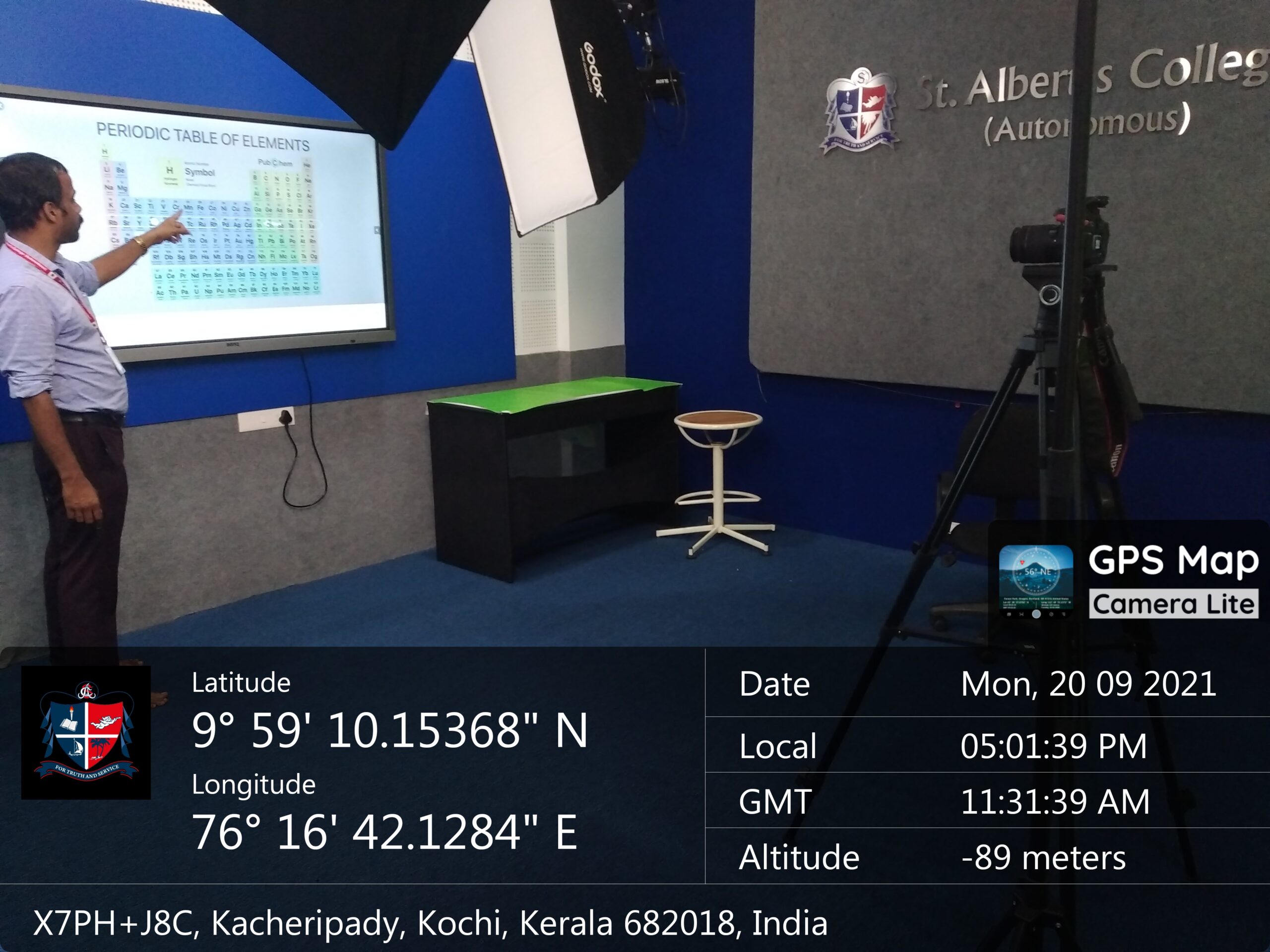
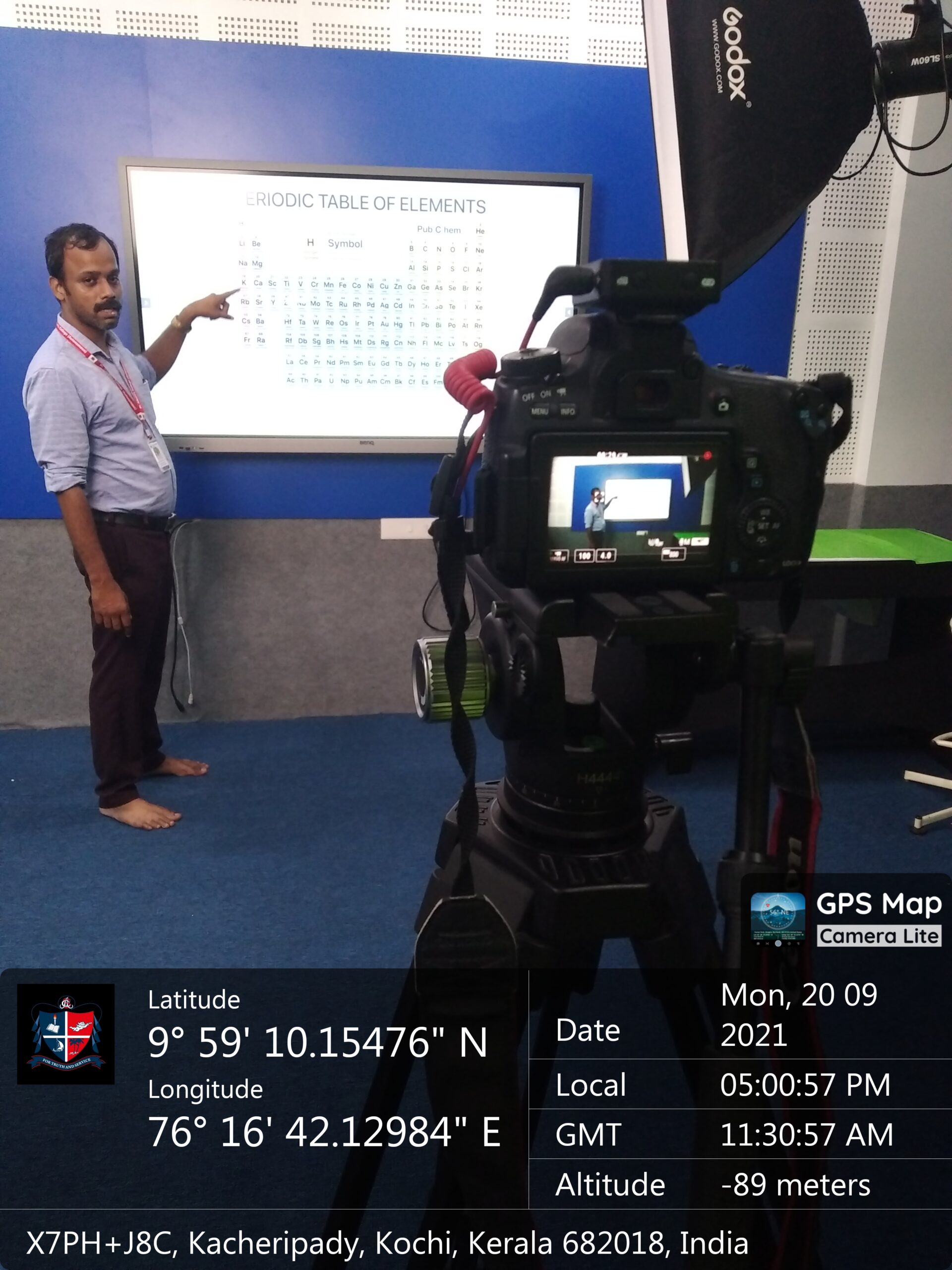
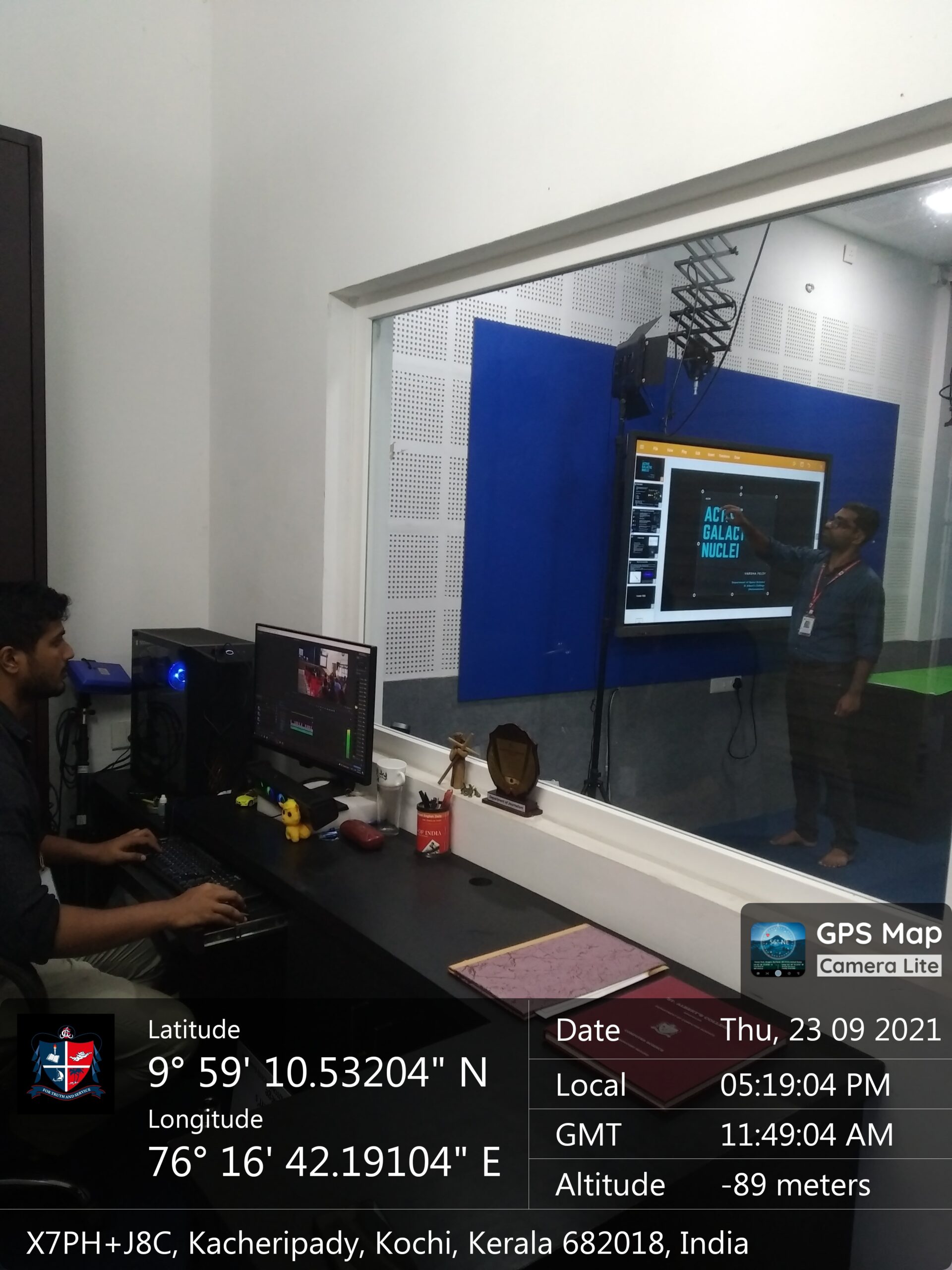
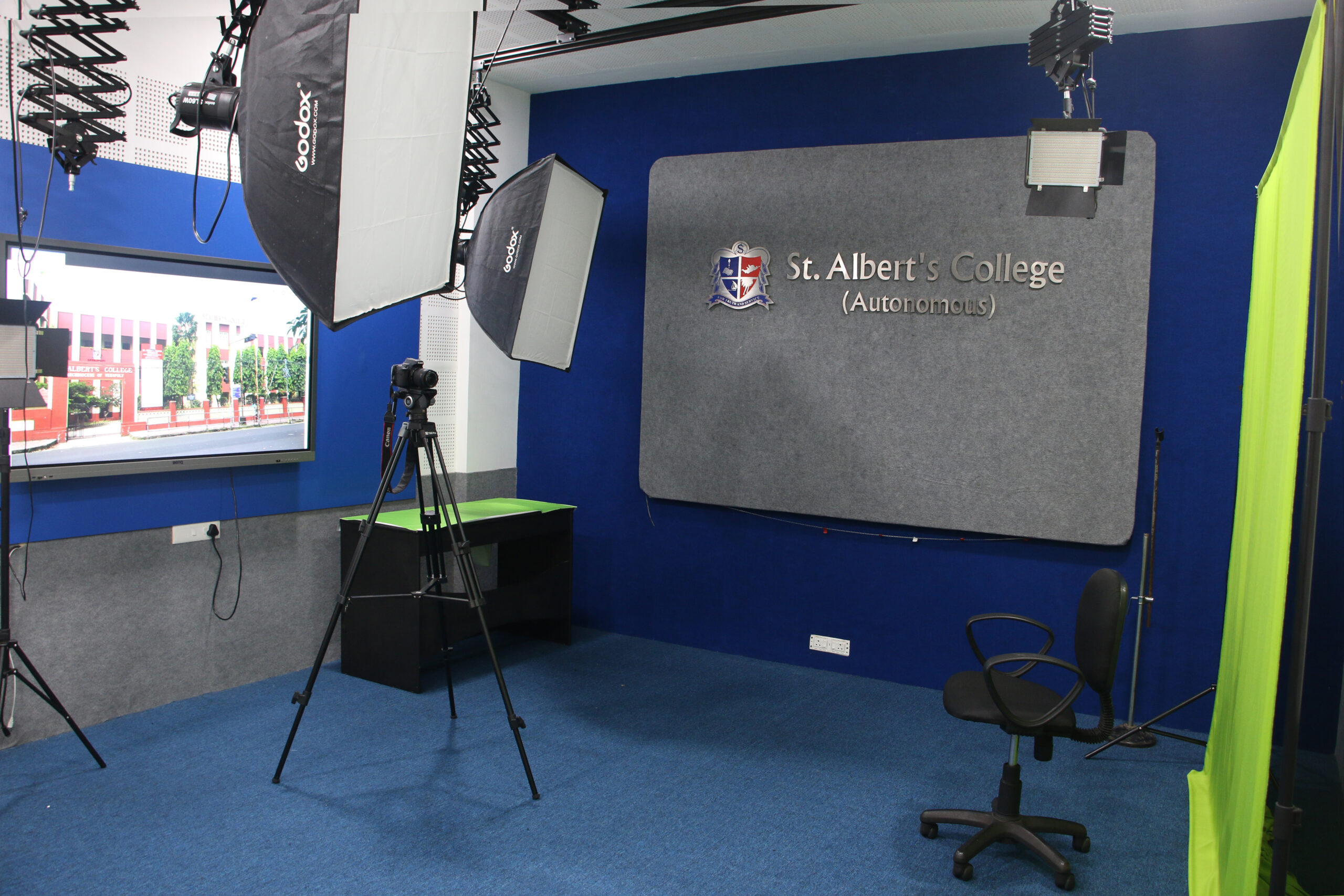
- Learning Management System
The nature of learning has changed drastically over time. Technology is no longer an option, always kept up with changing times and adapted to such dynamic environments. St. Albert’s College (Autonomous) has developed a Learning Management System, the Albertian e-Learning Platform, an online learning space for teachers and students. This allows teachers to promptly upload online study materials and recorded classes, thus forming a good corpus of subject material. It also gives students the flexibility to access them as and when required. This Learning Management System makes the learning experience flexible, accessible and in pace with the globally developing online educational resources. The courses, fully developed by teachers and also available for learning communities from around the globe, with many courses already having learners from outside the college.
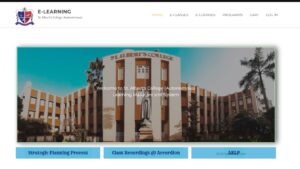
- Smart Interactive TVs
A Smart Interactive TV is a great digital aid which assists in merging all teaching and learning requirements of teachers and students. The institution installed its first Smart Interactive TV in its very own recording studio, the Accordion, in February, 2020. The videos presented and recorded by the members of staff across the various departments of the college were done with the aid of this Interactive Television. PowerPoints and other media were entirely presented on this Smart TV. Later, the installation of Smart Interactive TVs was expanded to the classrooms, as a one-place-solution ensuring the availability of all online resources at the touch of a finger, aiding teachers in their daily classes, enhancing the visual knowledge capacities of students as well. The quality of student presentations and seminars were also enhanced by this. Currently, around 46 Smart Interactive TVs have been installed and once the process is completed, the institution would be equipped with 80 Smart Interactive TVs.
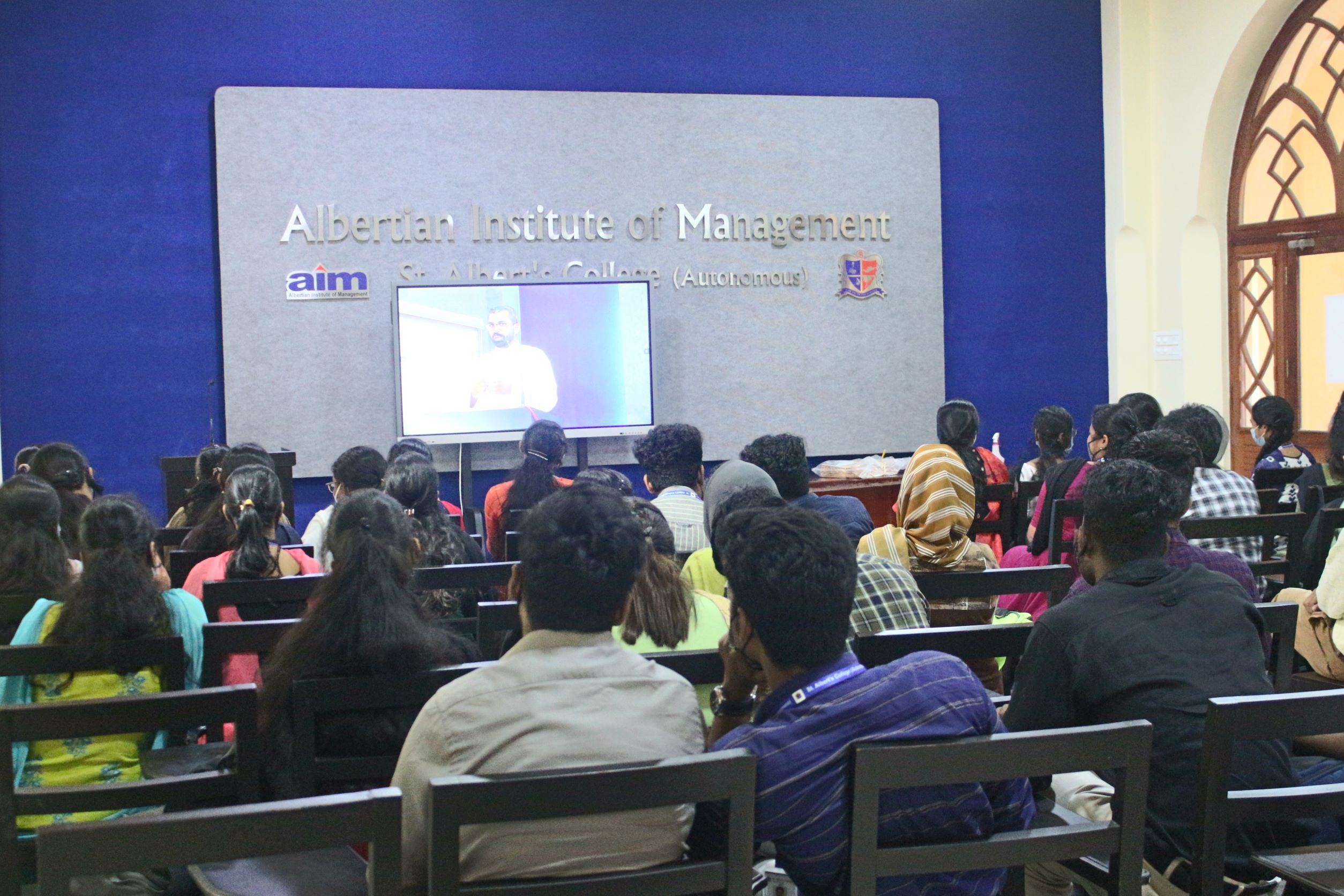
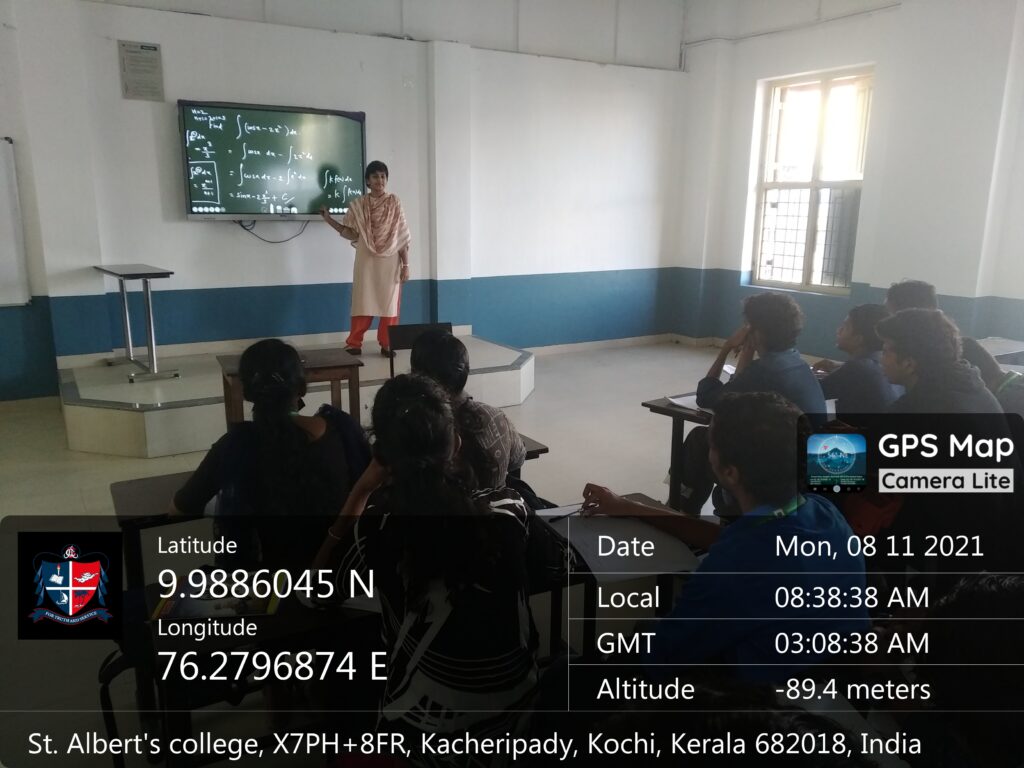
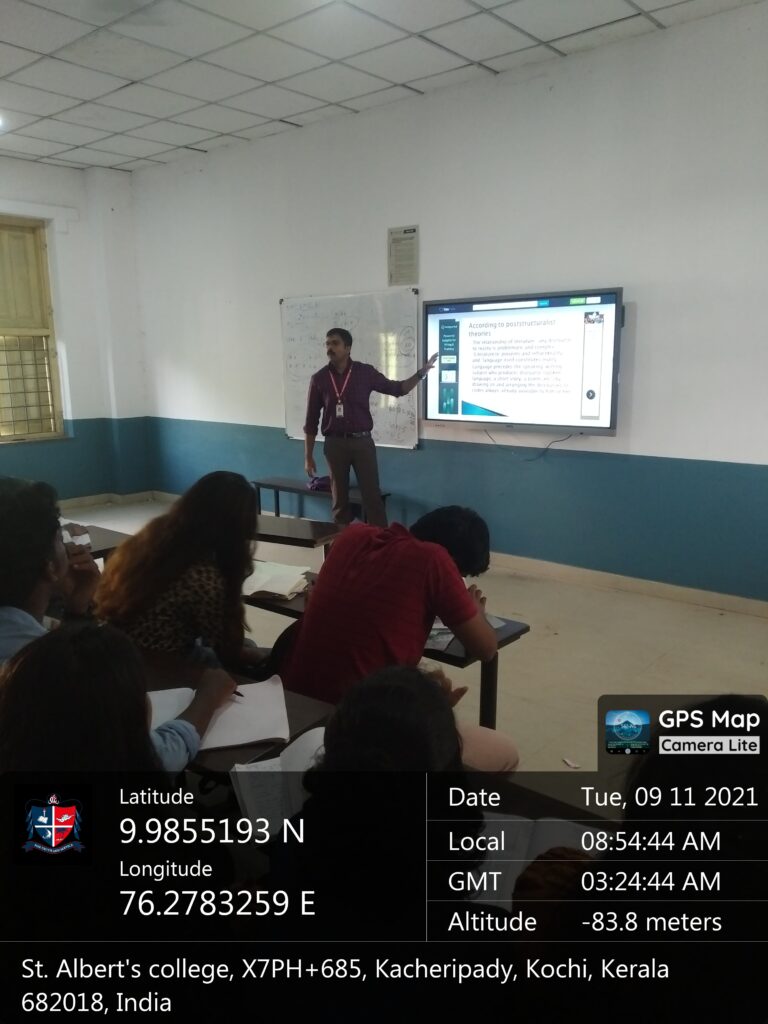
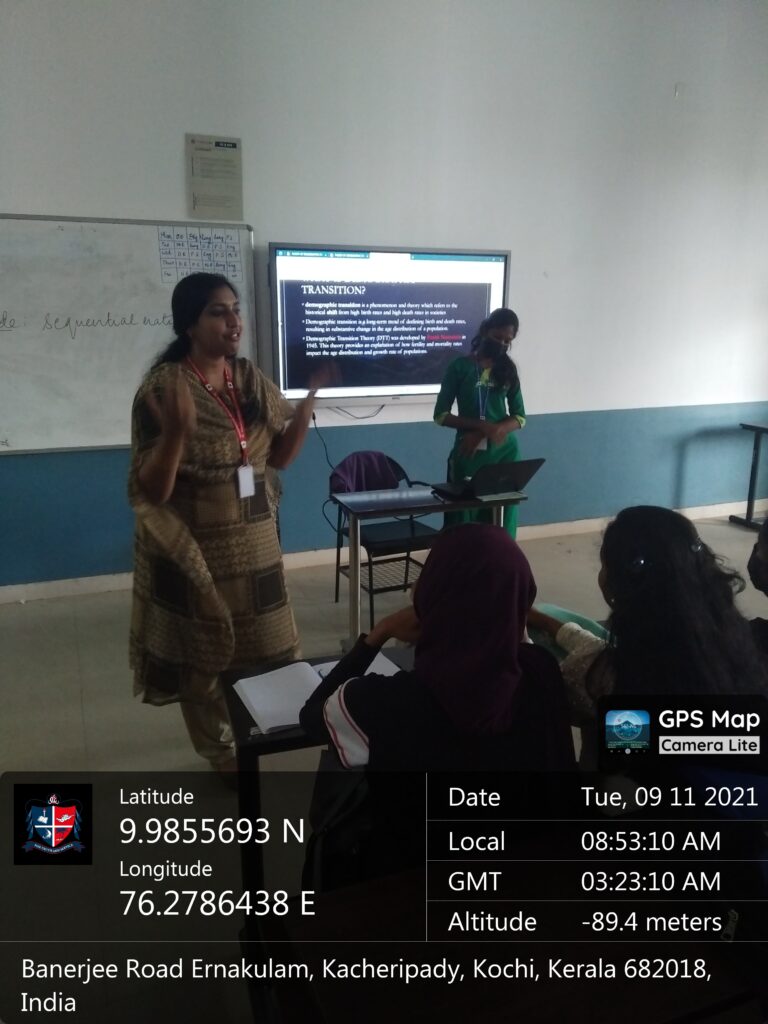

- ICT Enabled Classrooms
Since 2016, the college has used various resources to enhance the learning process, across all departments. In the academic year 2016-17, 132 teachers were using various ICT tools such as LMS and other e-Resources. In this academic year, the college had 12 ICT enabled classrooms and 12 Smart Classrooms, with various Desktops and a Laptop available for common use, with five Projectors, D-Space, a Computer Lab with Wifi, Origin, MS Word, Chemdraw, GAMESS, Firefly, Canva, Prezi and its very own LMS Platform. In the year 2020-21, this increased to twelve Laptops, five Projectors, OHP, with Printers and Scanners available in almost all departments of the college.
In the year 2017-18, the number of teachers using ICT tools increased to a141 and to 145 in 2018-19. In the Academic Year 2019-20, the number of teachers using ICT tools increased to 156 and to 198 in 2020-21. In the year 2018-19, the number of ICT enabled classrooms increased to 16 and Smart Classrooms to 17. In the year 2019-20, the number of the former increased to 20. The number of Smart Classrooms also saw a significant increase to 30 in the Academic Year 2020-21.
- e-Resources
The institution has a state-of-the-art library with a vast collection of books and journals. The library also houses a plethora of e-Resources, ensuring access to national and international journals and other resources aiding the learning and researching processes of the staff and students. The college is subscribed to the J-Gate Discovery Platform for Social & Management Sciences, Arts & Humanities, Basic Sciences, Agricultural & Biological Sciences, Engineering & Technology and Biomedical Sciences. These library resources will ensure visibility and usage of all the subscribed journal resources to all staff members, students and research scholars of the institution. The institution is also subscribed to the National Library and Information Services Infrastructure if Scholarly Content (N-LIST) and all the categories of online content which comes under its purvey. Every member of staff and student develops a profile with it, enabling access to a wide content of resources. Students are encouraged to use these online resources to increase the quality of their subject assignments and introduce themselves to the nature of research work. The college also has an institutional subscription to Plagiarism Checker. Teachers also continue to use other online learning platforms such as Google Classroom, Google Meet, Zoom, PowerPoint Presentations, Prezi, Keynote,Video Classes, YouTube Videos, Computational, Chemistry Software, Inflibnet, MOOC, NPTEL, Virtual Lab, CMFRI Repository and the CIFTRepository.
Other e-Resources used included Google Scholar, OWL, Shodhganga, NPTEL, Pathsala, vlab, Hyperphysics, Kickstart, E-Books, Physiology Softwares, Document Reader, N-List, EBSCO, Inflibnet, JSTOR, e-Gynkosh, Swayam, resources from The Society for the Teaching of Psychology, The Assosication for Psychological Science, the Social Psychology Network, Ted-Ed, The Society for Community Research and Action, MERLOT Psychology Portal, TeachPsychScience.org, The Society for Personality and Social Psychology, John Suler’s Site for Teaching Clinical Psychology, Psych Central, CSWE resources, OER Commons for Social Work, Open Textbook Library – Social Work, National Association of Social Workers, SWHELPER – Social Helper and School Social Work Association of America
In the Academic Year 2018-19, there was a growth in the various subject specific e-Resources used by various departments on the basis of their specific requirements. BCcampus, IE publishing, Bookboon for Managerial and Cost Accounting, Human Resource Management and Corporate Governance and Risk Management, Lumen Learning, BCcampus Open-ed, Openstax, McGraw Hill Higher Education, Libraries of Michigan University Financial Management for Small Businesses and Wayback Machine were some of the significant ones.
From the Academic Year 2019-20 to 2020-21 up until the current Academic Year, with the global pandemic, the teaching-learning process was more digitized than ever before. In addition to the existing use of e-Resources, other platforms such as Screencastomatic, PVwatts, Infinitypv.com, Google Classroom, Google Meet, Google Scholar, the Columbus State University LibGuides resources for Research Design & Methodology, the International Journal of Business Science and Applied Management, Virginia Tech Strategic Management (vt.edu) and resources of the American Economics Association and Coreecon were also incorporated.
In addition to these, Accordion, the recording studio of the college was used extensively and effectively to record classes by all members of staff, the classes which were later uploaded to the Albertian e-Learning Platform for open student access.
CONCLUSION
Online Learning is a dynamic space, evolving constantly, and thus challenging, as it requires all its learners to keep themselves updated. This helps in ensuring that teachers and students are inspired to keep their learning and researching processes up with the rising global standards. St. Albert’s College (Autonomous), Ernakulam gives great thrust to its digital knowledge and capacity, enhancing its physical and online facilities.
